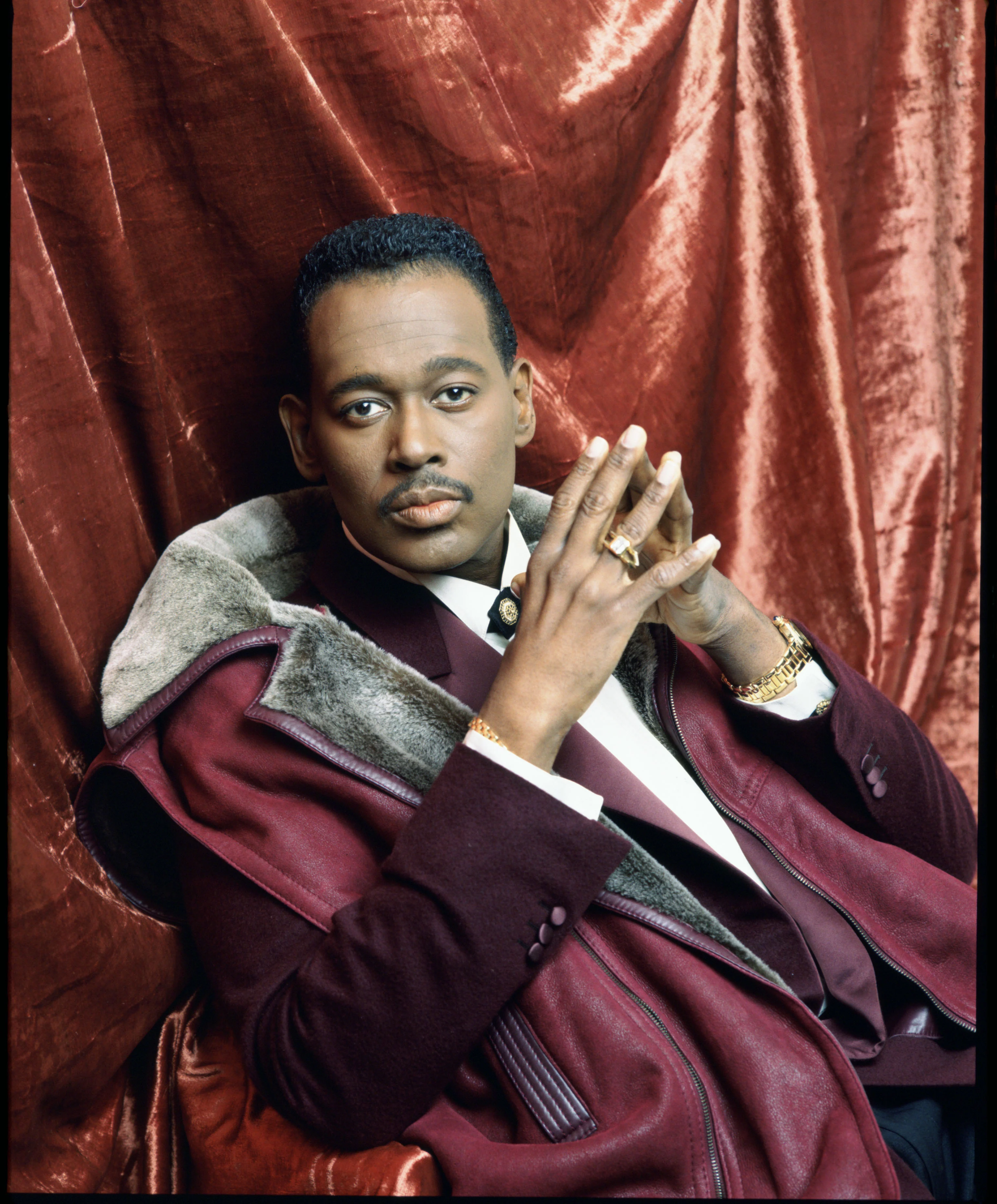Hey there, music lovers and curious minds! If you're here, chances are you're diving into the fascinating world of Luther Vandross—a true icon in the music industry. Today, we’re not just talking about his legendary hits or soulful voice but digging deeper into a question that’s been on many fans' minds: who inherited Luther Vandross estate? Stick around because this is going to be one heck of a story filled with twists, tribulations, and a whole lot of heart.
Let’s rewind a bit. Luther Vandross wasn’t just any artist; he was a powerhouse who defined an era with songs like "Endless Love," "Here and Now," and "A House Is Not a Home." But life, as we all know, isn’t just about the highs. When Luther passed away in 2005 after battling a stroke, the world lost a legend, but the question of his estate left many scratching their heads. So, who exactly stepped up to claim his legacy?
What makes this story even more intriguing is how it reflects the complexities of celebrity estates and the importance of having a solid plan in place. Luther’s story isn’t just about money or fame—it’s about legacy, family, and honoring a life well-lived. Let’s dive deep into the details, shall we?
- Kelcy Warren Crunchbase A Deep Dive Into The Business Empire
- Brandi Angela Brandt A Rising Star In The Entertainment World
Table of Contents
- Biography of Luther Vandross
- Overview of Luther Vandross Estate
- The Inheritance Process
- Family Dynamics and Legal Battles
- Key Assets in the Estate
- Legacy in Music
- Long-Term Planning and Trusts
- Tax Considerations
- Impact on Fans and the Music Industry
- Final Thoughts
Biography of Luther Vandross
Before we get into the nitty-gritty of Luther Vandross estate, let’s take a moment to appreciate the man behind the music. Born on April 20, 1951, in New York City, Luther grew up in a family that nurtured his love for music. His mother, Mary Ida Vandross, was a key figure in shaping his early years and instilling a deep appreciation for soul and R&B.
Early Life and Career
Luther’s journey wasn’t always smooth sailing. He faced challenges growing up, including the loss of his father at a young age. But his passion for music kept him going, leading him to perform in various local bands and eventually land a gig as a backup singer for stars like David Bowie and Chaka Khan. It wasn’t long before he carved out his own niche, becoming a household name with hits that resonated with millions.
| Full Name | Luther Ronzoni Vandross |
|---|---|
| Date of Birth | April 20, 1951 |
| Place of Birth | New York City, USA |
| Occupation | Singer, Songwriter, Music Producer |
| Years Active | 1970s–2000s |
Overview of Luther Vandross Estate
When Luther Vandross passed away, his estate became a topic of conversation among fans and legal experts alike. The Luther Vandross estate was estimated to be worth around $15 million at the time of his death. But what exactly does that figure encompass? Let’s break it down.
- Marlene Beniacutetez The Rising Star Whos Taking The World By Storm
- Unveiling The Net Worth Of Frankie Valli A Journey Through Time And Triumphs
His assets included royalties from his music, real estate properties, and personal belongings. However, the complexities of managing such an estate were compounded by the absence of a clear will. This led to some interesting developments in the inheritance process.
The Inheritance Process
So, who inherited Luther Vandross estate? Well, the short answer is his family. Specifically, his mother, Mary Ida Vandross, and his siblings played key roles in overseeing the estate. However, the process wasn’t without its challenges.
Legal Steps Involved
- Probate Court: Since Luther didn’t leave a will, his estate had to go through probate court to determine the rightful heirs.
- Heirs Identification: The court identified his immediate family members as the primary beneficiaries.
- Asset Distribution: Assets were distributed according to state laws, with the majority going to his mother and siblings.
It’s worth noting that the absence of a will often leads to delays and disputes, which is why estate planning is crucial for anyone, especially celebrities with significant assets.
Family Dynamics and Legal Battles
Family dynamics can get tricky, especially when large sums of money are involved. In the case of Luther Vandross, his family worked together to ensure his legacy was preserved. However, there were whispers of disagreements over certain aspects of the estate.
For instance, some family members wanted to focus on maintaining Luther’s music legacy, while others were more concerned with financial stability. These differing priorities sometimes led to tension, but ultimately, they managed to find common ground.
Key Assets in the Estate
Let’s talk about the goodies. Luther Vandross’s estate included a range of valuable assets, such as:
- Music Royalties: A significant portion of his wealth came from royalties for his timeless hits.
- Real Estate: He owned properties in various locations, including his primary residence in New York.
- Personal Belongings: From awards to memorabilia, these items held sentimental value and fetched high prices at auctions.
Each of these assets required careful management to ensure they were preserved and utilized in a way that honored Luther’s memory.
Legacy in Music
Luther Vandross’s impact on the music industry is undeniable. His estate continues to generate revenue through music sales, streaming, and licensing deals. But more than that, his legacy lives on through the countless artists he inspired.
Many modern musicians cite Luther as a major influence, and his songs remain staples in playlists around the world. The way his estate was managed has helped keep his music alive, ensuring that future generations can enjoy his artistry.
Long-Term Planning and Trusts
After Luther’s passing, his family established trusts to manage his assets over the long term. These trusts were designed to ensure that his estate would continue to benefit his loved ones and support charitable causes.
By setting up trusts, they avoided potential disputes and ensured that Luther’s legacy would be safeguarded for years to come. It’s a lesson for all of us—planning ahead can make a world of difference when it comes to estate management.
Tax Considerations
Taxes can be a headache, even in the afterlife. The Luther Vandross estate faced its fair share of tax obligations, which had to be carefully managed. Estate taxes, income taxes from royalties, and other financial considerations were all part of the equation.
His family worked with legal and financial experts to navigate these challenges, ensuring that the estate was handled in compliance with all applicable laws. It’s a reminder that estate planning isn’t just about who gets what—it’s also about minimizing the tax burden.
Impact on Fans and the Music Industry
The way Luther Vandross’s estate was managed has had a lasting impact on both his fans and the music industry as a whole. Fans continue to celebrate his life and music, while the industry looks to his legacy as an example of how to handle the estates of beloved artists.
His story serves as a reminder of the importance of having a solid plan in place, not just for the sake of family but also for the sake of preserving an artist’s legacy. It’s a lesson that resonates with anyone who values the arts and the people who create them.
Final Thoughts
So, who inherited Luther Vandross estate? In the end, it was his family who stepped up to carry the torch. But more than just the inheritance, it’s the legacy that truly matters. Luther Vandross’s music continues to touch lives, and his estate serves as a testament to the power of planning and preservation.
As we wrap up this story, I encourage you to take a moment to reflect on your own legacy. Whether you’re a fan, an artist, or just someone who cares about the future, planning ahead can make all the difference. So, leave a comment, share this article, and let’s keep the conversation going!
- Who Is The Emerson Family Unveiling The Legacy Influence And Fascinating Journey
- Andrew Witty Education A Comprehensive Insight Into His Academic Journey


